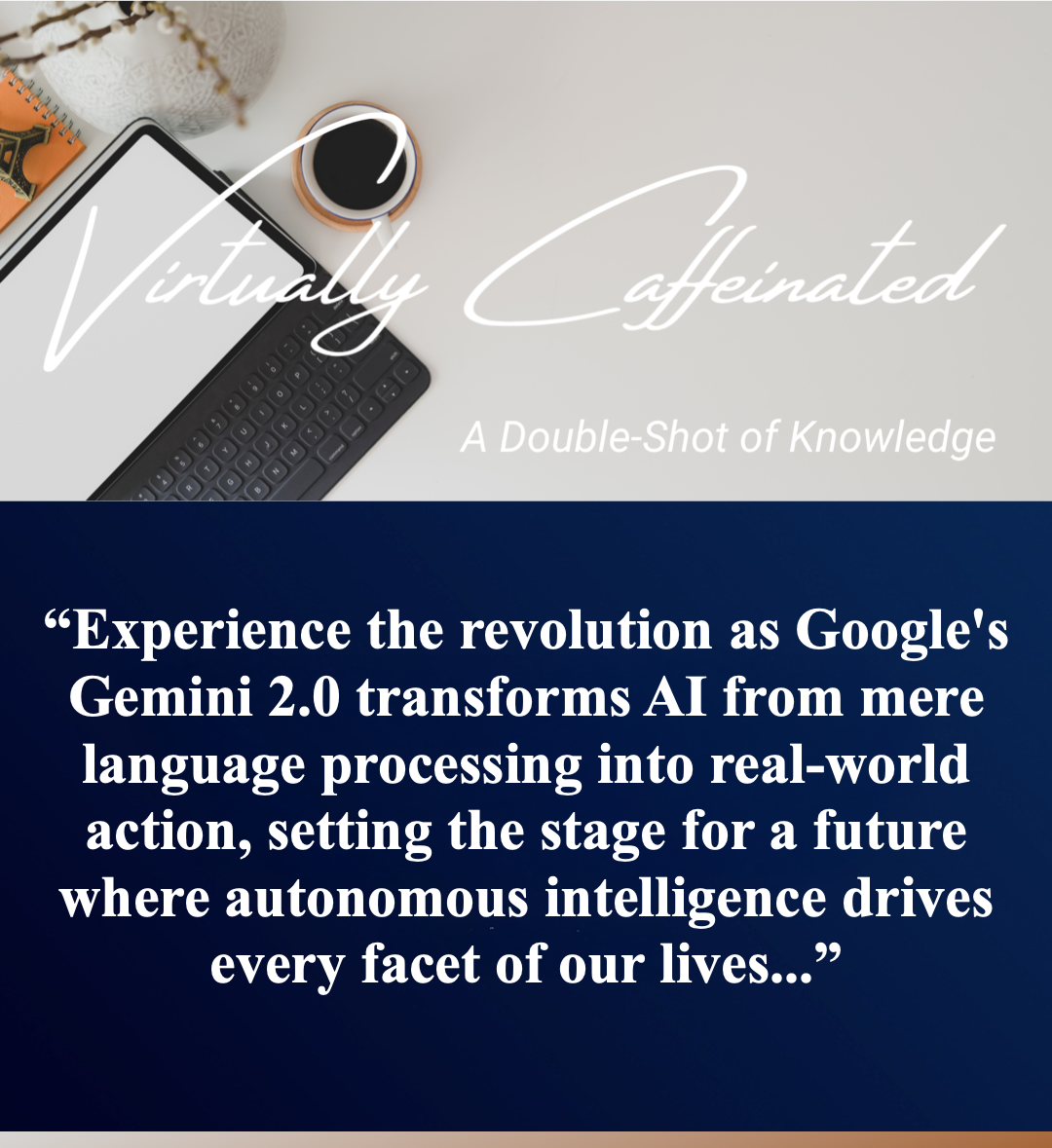Unveiling Google’s Gemini 2.0: The Dawn of Autonomous AI
In the ever-evolving landscape of artificial intelligence (AI), Google’s latest innovation, Gemini 2.0, stands as a monumental leap toward autonomous AI systems. This development not only showcases technological prowess but also signifies a pivotal moment in how AI integrates into our daily lives.
The Genesis of Gemini 2.0
Google’s journey with AI has been marked by continuous advancements, each building upon the last to create more sophisticated and capable systems. Gemini 2.0 is the culmination of years of research and development, designed to seamlessly blend language understanding with robotic functionalities. This integration allows AI to not only process information but also interact with the physical world in real-time, a feat that was once the realm of science fiction.
Key Features and Capabilities
- Multimodal Integration: Gemini 2.0 combines visual, linguistic, and motor skills, enabling it to interpret complex instructions and execute tasks with human-like precision. For instance, it can understand a verbal request to “pick up the red book on the table” by visually identifying the book and physically grasping it.
- Enhanced Learning Algorithms: The system employs advanced machine learning techniques that allow it to learn from minimal data. This means Gemini 2.0 can adapt to new tasks and environments without extensive reprogramming, making it highly versatile in dynamic settings.
- Safety and Compliance: Understanding the potential risks associated with autonomous AI, Google has incorporated robust safety protocols. Gemini 2.0 can assess the safety of its actions in real-time, ensuring compliance with established guidelines and minimizing the risk of unintended consequences.
Implications for Various Industries
The introduction of Gemini 2.0 has far-reaching implications across multiple sectors:
- Healthcare: Autonomous AI can assist in surgeries, manage logistics within hospitals, and provide support in rehabilitation therapies, thereby reducing the workload on healthcare professionals and improving patient outcomes.
- Manufacturing: With the ability to perform complex tasks, Gemini 2.0 can revolutionize assembly lines, handle hazardous materials, and operate in environments unsuitable for humans, leading to increased efficiency and safety.
- Service Industry: From hospitality to retail, autonomous AI can enhance customer experiences through personalized services, efficient operations, and innovative solutions to common challenges.
Ethical Considerations and Societal Impact
As with any groundbreaking technology, the deployment of Gemini 2.0 raises important ethical questions:
- Job Displacement: The automation of tasks traditionally performed by humans could lead to job losses in certain sectors. It is crucial to develop strategies for workforce retraining and the creation of new job opportunities to mitigate this impact.
- Decision-Making Autonomy: Granting AI systems the ability to make autonomous decisions necessitates a discussion on accountability and the extent of control these systems should have.
- Privacy Concerns: The data required for AI to function effectively must be handled with utmost care to protect individual privacy and prevent misuse.
The Road Ahead
Google’s Gemini 2.0 represents a significant milestone in the journey toward fully autonomous AI. However, its success and acceptance will depend on addressing the ethical, social, and technical challenges it presents. As we stand on the brink of a new era in AI, it is imperative to approach this technology with a balanced perspective, embracing its potential benefits while vigilantly safeguarding against its risks.

